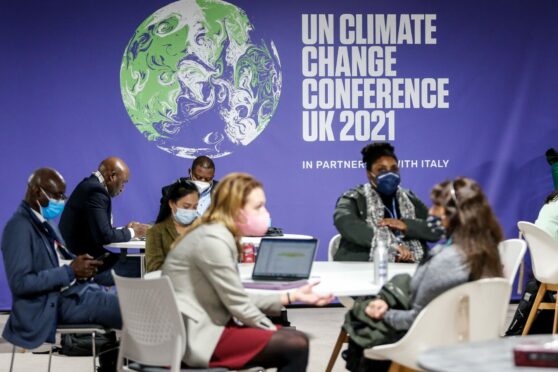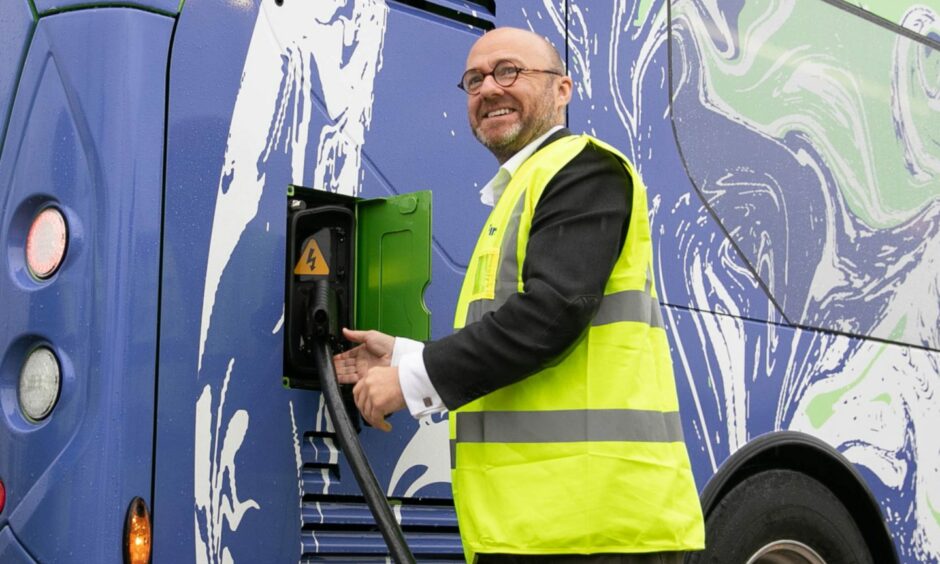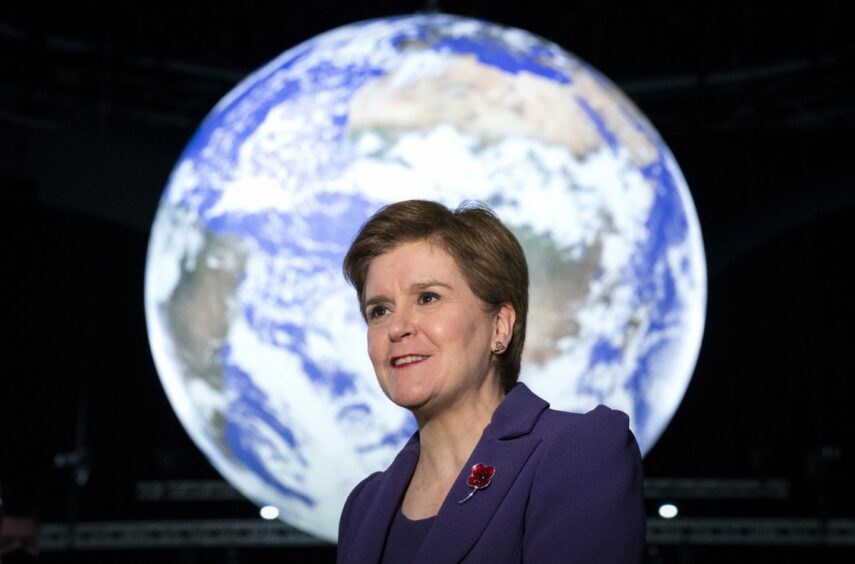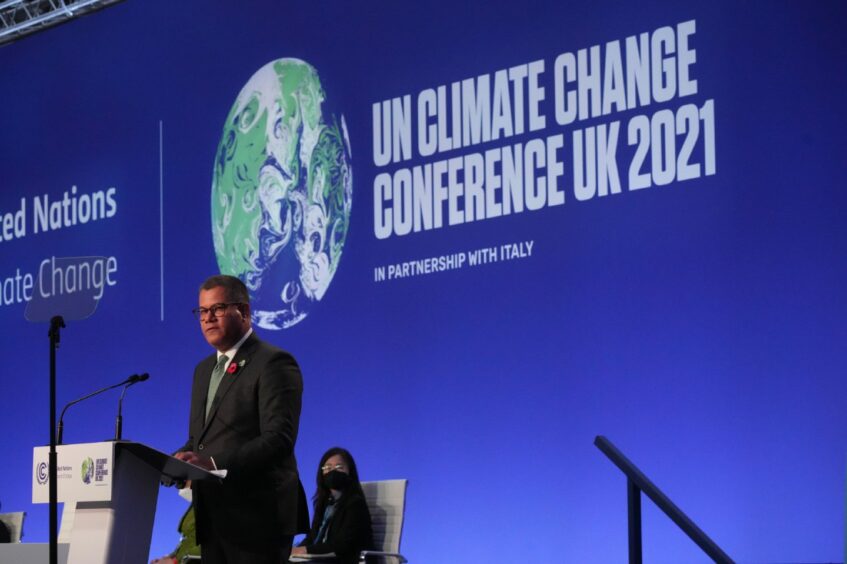A global climate deal secured at the COP26 summit in Glasgow has received mixed reactions from Scotland’s politicians, the UN’s climate change chief and activists around the world.
The landmark summit was billed as the last best chance to keep the goal of limiting world temperature rises to 1.5C within reach – and avoid the worst impacts of climate extremes.
However the new “Glasgow pact” delivered at the talks has already been branded a “failure” by Scottish Government minister Patrick Harvie.
The Scottish Greens co-leader, whose party is in a power sharing agreement with the SNP Government, said the conclusion reached at the summit is “shameful”.
Mr Harvie, minister for zero carbon buildings, active travel and tenants’ rights, said: “The failure of governments to deliver an agreement that puts the planet on course for a 1.5C rise is shameful.
“The influence of fossil fuel companies is clear. We know that fossil fuel companies had more representation at this summit than any single nation, and the outcome has reflected that.”
Watered down pledge on coal
The Glasgow Climate Pact agreed on Saturday evening contains the first explicit mention of fossil fuels in a UN climate agreement.
But this was watered down – in a push from India and China – from a call to escalate the “phase out” of unabated coal to “phase down”, sparking anger from the EU and island states.
Ministers and negotiators also agreed to get countries to strengthen their emissions-cutting targets for 2030 by the end of next year.
A series of deals by countries and businesses on cutting methane emissions, curbing deforestation, switching to electric cars, driving investment in clean technology and phasing out coal power were announced alongside the formal negotiations, as part of efforts to drive “real-world” climate action.
The final decisions come after a fortnight of negotiations which began with 120 world leaders attending the summit.
Sturgeon says summit ‘made progress’
First Minister Nicola Sturgeon said the COP26 event had “made progress”.
She said: “The Glasgow Climate Pact does not contain everything that every country wanted and there is understandable disappointment that key issues were watered down in the final hours, but there can be no doubt that the Glasgow summit has made progress on some important issues.
“The importance of capping temperature increases at 1.5 degrees is no longer questioned and the need for countries to come back next year with higher contributions to tackling emissions may just be enough to keep 1.5 alive – if countries including Scotland really do deliver on our commitments.”
Temperature goal ‘definitely alive’
Patricia Espinosa, executive secretary of the UN Framework Convention on Climate Change, said the 1.5C target was “definitely alive” after the conference.
She told the BBC’s Andrew Marr Show that the difference between 1.5C and 2.4C of warming, which the Climate Action Tracker forecasts the current pledges would result in, is “the survival of millions and millions of people and species”.
What is the difference between 1.5C and 2.4C degrees warming?
In Barbados, two degrees warming “is a death sentence”, says UN Climate Chief Patricia Espinosa – adding the difference is "survival of… millions of people and species in the planet"https://t.co/1OnmDg419n #Marr pic.twitter.com/Jg2P7oDcpf
— BBC Politics (@BBCPolitics) November 14, 2021
Ms Espinosa said: “I would like to underline that the huge step forward in our negotiations was the fact that for the first time in this context we mentioned coal and fossil fuels.
“Before, it had not been possible, of course, because… we have to be very conscious that there are millions and millions of people that depend on fossil fuel industries, and in terms of coal there are many people, especially venerable and poor people, that also depend on that as a source of energy.
“So, on the one hand, we have clarity that this is a very big source of emissions and we need to get rid of that.
“On the other hand, we need to also balance out the social consequences for so many people around the world, especially in the poor countries.”
China and India will have to ‘explain themselves’ over deal
In the wake of the deal, Cop26 President Alok Sharma, who was close to tears on a number of occasions during an hours-long final plenary, said the summit had met its key goal of keeping the 1.5C limit within reach.
But he warned: “Its pulse is weak and it will only survive if we keep our promises, if we translate commitments into rapid action and if we deliver on the expectations set out in this Glasgow Climate Pact to increase ambition to 2030 and beyond.”
Mr Sharma told the BBC that China and India would have to “explain themselves”.
Speaking to Sky News’ Trevor Phillips On Sunday programme, he said: “Of course I would have liked to ensure we maintain the ‘phase out’ rather than changing the wording to ‘phase down’, but on the way to phasing out, you’ve got to phase down.
“But, ultimately, of course, what we need to ensure is that we continue to work on this deal, on these commitments, and on the issue of coal, China and India are going to have to justify to some of the most climate vulnerable countries what happened.”
Asked whether his emotional reaction to the change in language on coal was an admission of failure, Mr Sharma said: “I wouldn’t describe what we did yesterday as a failure – it is a historic achievement.”
Call for UK nations to work together
North East MSP Maurice Golden said the summit had made “overwhelmingly clear” that only a concerted effort from the whole UK will enact the required change as he hit out at the SNP’s record on reducing emissions.
We reported previously how the Scottish Government has been accused of a series of broken promises after repeatedly failing to meet its own emissions targets.
Mr Golden said: “The SNP’s devolved record on the environment is utterly appalling, and it’s no wonder senior nationalist ministers didn’t want to talk much about it during the summit.
“The nationalists should abandon the habit of a lifetime and start seeing the benefit in working with the UK Government on this most crucial of areas.
“We have a number of investment opportunities, not least the Tay Cities Deal, which can ensure this area can be at the forefront of a green recovery.”




